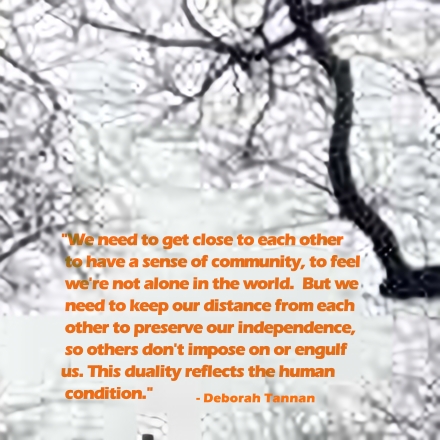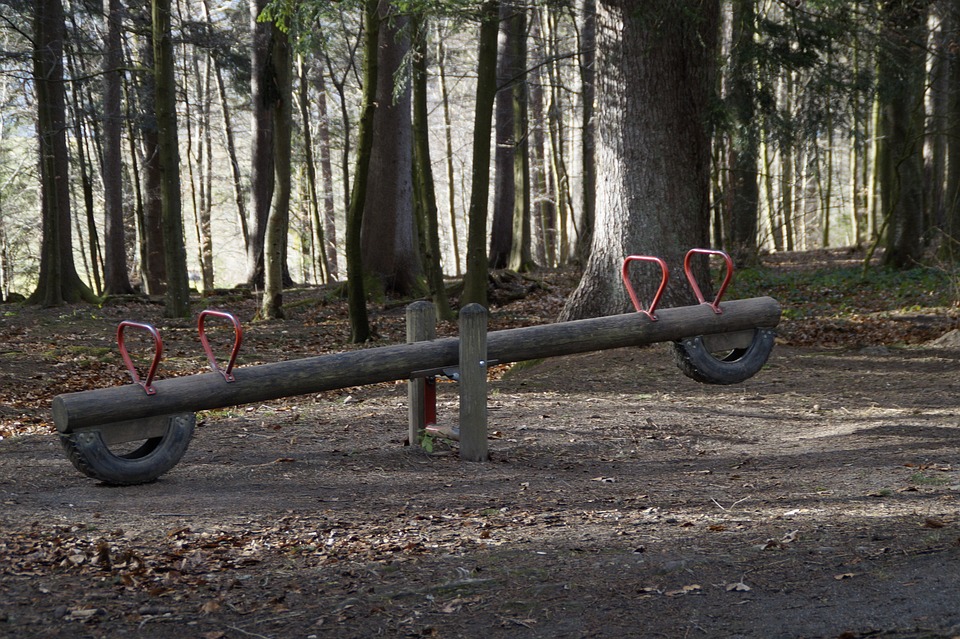
The balance between connection and independence is fragile. All our relationships run the risk of moving too close or too far. It is especially hard when our beloved children become teenagers.
Stage of development
The teen years are when they step out of the “community” of family and create other communities of peers, outside our view. It is a readjusting of that balance between connection and independence with parents and siblings. Often it feels sudden and jarring.
The last time they made a big move for independence was when they were toddlers. Then it was a relief for them to be a bit more self-sufficient. As they grow up they gain more confidence in little bits and we are generally proud as they learn to do things on their own. When they become teens suddenly it feels like they are moving away from us. It can be hard not to take it personally as they start to confide and depend more on their friends than on us. We feel we are losing our influence because they are telling us – we don’t get it.
It is good to remember that this too is a stage of development, not the end of our connection. Most of us go on to build better relationships with our parents as we become adults. Over time we recognize them as humans. Our children too will start to recognize the parts of us in them, and that a parent is still just human.

Time to Let Go
Now, when they are struggling to become adult, is the time for us let go of being responsible for their happiness, their future and even their behavior. They are becoming responsible for how the world sees them, and what they want to do to build a happy fulfilled life.
This does not mean we withdraw all support, have no opinions, or even like their behaviors. We get to tell them what is acceptable behavior while they are under our roof. We get to tell them what we think of the choices they are making, or not making. With all that said, it is important to let them make their own decisions. In the end they will live with the consequences.

Homework for instance
Homework is often a sticky point. Their teachers may tell us that they are not performing up to the level they could. We get to talk to them about what that might mean, that the teachers are concerned, that we are concerned and then let go. Remind them that the consequences, of bad grades, detention, extra work – whatever the teacher decides, are on them.
These are the things we get to remember. Bad grades in high school will not actually follow them through out life. Which college they go to is less important than the attitude they bring to their college experience. How they react, what the consequences are; are learning experiences. We can let go of trying to control their behavior, and instead try to influence their decisions.

Easier said than done
This is much easier said than done. It is hard to know where to draw the line, what to say and how to say it, when we feel so much is at stake. We don’t have to help them execute decisions we disagree with or fix the mistakes they have made. We can help them when we agree with what they are doing. We can try to find compromise everyone can feel good about (or not bad about). We can even help them out of a ditch when they ask for help.
We don’t have to be mean or punitive, we can be supportive without helping. We can help without being supportive. We have lots of options. What we can no longer do is actually control their behavior. (not that we actually ever could). When they were younger it could feel like we were in charge. Now, it can feel like we are losing control.
Losing control is not losing them. We are watching them become adult. These are the “lumpy” years, often in looks and behavior as they grow into their next stage of life. These are the years that they pull away and readjust the balance between connection and independence. We can be glad that they are moving away from dependance on us and finding out who they are. Our job is to help them find who they want to be, by continuing to love them through all the twists and turns.






